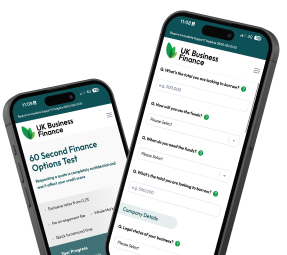Asset Finance
Asset Finance Specialists – Finance Options for Equipment, Vehicle, Plant and Machinery
Having the right machinery and business assets can be crucial in allowing your company to thrive and trade to its full potential. Paying for this equipment, however, can be out of reach for many without taking out a loan to pay for it.
Asset finance is a form of commercial finance whereby a loan is secured against a particular asset – or asset class - owned by the borrowing company. This can be almost anything which has an intrinsic financial value, however, more often than not borrowing is secured against an asset such as a fleet of vehicles, machinery, or stock.
Asset finance comes in two main forms: borrowing to directly fund the purchase of a specific asset through either hire purchase or a lease agreement; or alternatively, taking out new funding for which an asset which is already owed by the company is used as collateral to improve cash flow and increase working capital.
Solutions Based Funding Options
- UK's Leading Business Funders
- Free Brokerage Service
- Full Market Access
In both cases, the loan is secured against a named asset – or assets – and in the event the company cannot repay the money owed, the finance company can assume control of the asset and sell it in order to recover the funds. Due to this, you must adhere to certain conditions when it comes to selling or disposing of the asset at any point in the future. Until you have repaid the finance in full and the ownership transfers to your company (which may be the case at the end of a hire purchase agreement), you will not be able to sell without informing your asset finance provider and ensuring enough funds will be available to fully repay any outstanding balance.
Advice on Finance Options
Arrange a free consultation with a finance and funding expert at Begbies Traynor Group – choose a time at your convenience and with no obligation.
Free ConsultationAsset finance is designed as a medium-term form of finance, meaning you should expect to be making repayments towards the borrowing for several years. Interest will be charged for the duration of the loan, however, spreading out the cost of the asset can ease the cash flow burden that buying outright may have on the company’s short-term financial position.
In order to qualify for asset finance, you will be required to demonstrate a good company credit history, the ability to afford the monthly contributions, as well as satisfying the lender that the chosen asset is suitable security for the loan. Despite this, it is often easier to obtain asset finance than a traditional bank loan from a high street lender as well as being available to not only limited companies, but also partnerships, sole traders and PLCs.
Contact Begbies Traynor Group
Our Media Centre
Read our latest news, expert opinion pieces and articles covering the the professional and financial sector.







